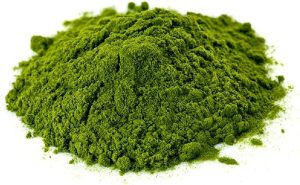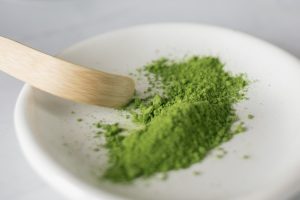
- Overview of Manganese
- Brief History of Manganese
- Functions of Manganese
- Recommended Daily Intake (RDI), Recommended Dietary Allowance (RDA), Adequate Intake (AI), or Reference Nutrient Intake (RNI) for Manganese
- Deficiency of Manganese
- Food Sources of Manganese and Where to Get It From
- Manganese and Its Interaction with Other Medications
- Websites and Articles to Delve into the Benefits of Manganese
- Disclaimer
Overview of Manganese
Manganese is an essential trace element that plays a crucial role in various physiological processes within the human body.
It serves as a cofactor for numerous enzymes involved in metabolism, bone formation, and antioxidant defense. Manganese contributes to the proper development and maintenance of connective tissues, blood clotting factors, and sex hormones.
While manganese deficiency is rare, excessive exposure to manganese, particularly through occupational settings, can lead to neurological issues known as manganism. In medicine, manganese is primarily recognized for its role as a cofactor in enzyme systems, supporting overall health and contributing to the body’s ability to maintain essential functions. As with any micronutrient, maintaining a balanced intake is essential for optimal health.
Brief History of Manganese
Manganese has a nuanced history in medicine, with both positive and negative aspects. Here’s a brief overview:
- Early Observations:
- In the early days of medicine, manganese-containing minerals were utilized in traditional remedies, although the understanding of the specific element was limited.
- Recognition as an Essential Nutrient:
- As scientific knowledge advanced, manganese was recognized as an essential trace element crucial for human health. It was identified as a cofactor for various enzymes involved in metabolic pathways, bone formation, and antioxidant defenses.
- Manganese Deficiency and Toxicity:
- Manganese deficiency is rare, given its presence in many foods. However, certain medical conditions or extreme dietary imbalances can lead to deficiencies. On the flip side, excessive exposure to manganese, especially in occupational settings like mining or welding, can result in toxicity and neurologic symptoms resembling Parkinson’s disease, a condition known as manganism.
- Bone Health:
- Manganese plays a role in bone formation and maintenance, contributing to skeletal health. Its involvement in the synthesis of glycosaminoglycans, essential components of cartilage, further underscores its importance.
- Enzyme Function:
- Manganese serves as a cofactor for various enzymes, including those involved in the metabolism of amino acids, cholesterol, and carbohydrates. These enzymes are vital for energy production and cellular function.
- Antioxidant Defense:
- Manganese contributes to the body’s antioxidant defense mechanisms, helping neutralize harmful free radicals and reduce oxidative stress.
- Ongoing Research:
- Ongoing research explores the potential therapeutic roles of manganese in conditions such as epilepsy and neurodegenerative disorders. However, the delicate balance between sufficiency and excess underscores the importance of careful consideration in medical applications.
| Topic | Key Points |
| Early Observations | In the early days of medicine, manganese-containing minerals were used in traditional remedies, with limited understanding |
| Recognition as an Essential Nutrient | Manganese recognized as an essential trace element for human health. Functions as a cofactor for enzymes in metabolic pathways, bone formation, and antioxidant defenses. |
| Manganese Deficiency and Toxicity | Manganese deficiency is rare due to its presence in many foods. Excessive exposure, especially in certain occupations, can lead to toxicity and neurologic symptoms resembling Parkinson’s. |
| Bone Health | Manganese contributes to bone formation and maintenance. Involvement in the synthesis of glycosaminoglycans for cartilage health. |
| Enzyme Function | Acts as a cofactor for enzymes in amino acid, cholesterol, and carbohydrate metabolism. Vital for energy production and cellular function. |
| Antioxidant Defense | Contributes to the body’s antioxidant defense, neutralizing free radicals and reducing oxidative stress. |
| Ongoing Research | Ongoing exploration of manganese’s potential therapeutic roles in epilepsy and neurodegenerative disorders. Emphasis on maintaining a delicate balance between sufficiency and avoiding excess in medical applications. |
In summary, manganese’s history in medicine reflects its dual nature — an essential nutrient crucial for health, but also a substance that requires careful management to prevent toxicity. Its roles in enzyme function, bone health, and antioxidant defense continue to be areas of exploration in medical research.
Functions of Manganese
Manganese is an essential trace element that plays various important roles in the human body. Here are some key functions of manganese:
- Enzyme Activation:
- Manganese serves as a cofactor for several enzymes involved in various metabolic processes. Notably, it activates enzymes responsible for the metabolism of amino acids, cholesterol, and carbohydrates.
- Antioxidant Defense:
- Manganese participates in antioxidant systems, helping to neutralize free radicals and reduce oxidative stress. This function is crucial for protecting cells from damage caused by reactive oxygen species.
- Bone Formation:
- Manganese contributes to bone formation and maintenance. It is involved in the synthesis of glycosaminoglycans, essential components of cartilage and connective tissues.
- Blood Clotting:
- Manganese plays a role in the formation of blood clotting factors. It is involved in the synthesis of prothrombin, a protein essential for blood coagulation.
- Metabolism of Nutrients:
- Manganese is essential for the metabolism of nutrients, including proteins, carbohydrates, and fats. It supports the conversion of these macronutrients into energy.
- Neurotransmitter Regulation:
- Manganese is implicated in the regulation of neurotransmitters in the brain. It influences the synthesis and release of neurotransmitters, which are essential for communication between nerve cells.
- Reproductive Health:
- Manganese is involved in reproductive health, including the formation of sex hormones. It contributes to the development and function of the reproductive system.
- Wound Healing:
- Manganese plays a role in the synthesis of collagen, a protein crucial for wound healing and maintaining the integrity of skin and other connective tissues.
- Immune System Support:
- Manganese is associated with the proper functioning of the immune system. It contributes to the activation of certain immune cells and supports overall immune function.
- Blood Sugar Regulation:
- Manganese may play a role in blood sugar regulation. It influences insulin activity and helps maintain normal glucose metabolism.
It’s important to note that while manganese is essential for health, excessive intake can lead to toxicity. The recommended dietary intake should be obtained through a balanced and varied diet, and dietary supplements should be used cautiously under the guidance of healthcare professionals.
Recommended Daily Intake (RDI), Recommended Dietary Allowance (RDA), Adequate Intake (AI), or Reference Nutrient Intake (RNI) for Manganese
Manganese recommendations are typically provided as the Adequate Intake (AI) rather than the Recommended Dietary Allowance (RDA). The Adequate Intake represents the average daily intake level assumed to be adequate for healthy individuals when there is not enough scientific evidence to establish an RDA.
The Adequate Intake (AI) for manganese can vary based on age, sex, and life stage. Here are the AI values for manganese:
- Infants (0-6 months): 3 micrograms per day
- Infants (7-12 months): 600 micrograms per day
- Children (1-3 years): 1.2 milligrams per day
- Children (4-8 years): 1.5 milligrams per day
- Boys (9-13 years): 1.9 milligrams per day
- Girls (9-13 years): 1.6 milligrams per day
- Boys (14-18 years): 2.2 milligrams per day
- Girls (14-18 years): 1.6 milligrams per day
- Adult men (19 years and older): 2.3 milligrams per day
- Adult women (19 years and older): 1.8 milligrams per day
- Pregnant women: 2.0 milligrams per day
- Lactating women: 2.6 milligrams per day
It’s important to note that manganese requirements are generally met through a varied and balanced diet. Manganese is found in a variety of foods, including whole grains, nuts, seeds, legumes, and leafy green vegetables.
Please check with updated and authoritative sources or consult with healthcare professionals for the latest dietary recommendations, as these values may be subject to revisions or updates.
Deficiency of Manganese
Manganese deficiency is a rare condition, as the body typically requires only small amounts of manganese for its various functions. Manganese is found in a variety of foods, and deficiencies are more likely to occur in specific health conditions or circumstances. Here are some factors associated with manganese deficiency:
- Malnutrition:
- Severe malnutrition, especially in impoverished regions with limited access to diverse and nutrient-rich foods, can contribute to manganese deficiency.
- Digestive Disorders:
- Gastrointestinal disorders, such as celiac disease or Crohn’s disease, may impair the absorption of manganese and other nutrients, potentially leading to deficiencies.
- Liver Dysfunction:
- Manganese is metabolized in the liver, and liver dysfunction may impact the body’s ability to regulate manganese levels.
- Inherited Disorders:
- Rare genetic disorders, such as manganese transporter deficiencies, can interfere with the body’s ability to absorb and utilize manganese.
- Parenteral Nutrition:
- Individuals who rely on long-term intravenous (IV) nutrition without manganese supplementation may be at risk of deficiency.
- Certain Medications:
- Some medications, such as certain anticonvulsants and laxatives, may interfere with manganese absorption.
Manganese deficiency may manifest with symptoms such as:
- Skeletal abnormalities
- Impaired growth in children
- Altered glucose metabolism
- Abnormal cholesterol levels
- Dermatitis (skin inflammation)
- Nausea and vomiting
- Changes in hair color
- Hearing loss (in severe cases)
It’s important to note that manganese toxicity is more common than deficiency. Excessive manganese intake, often due to occupational exposure or certain medical treatments, can lead to neurological symptoms similar to Parkinson’s disease (manganism). Therefore, maintaining a balance in manganese intake is crucial for overall health.
If you suspect a manganese deficiency or have concerns about your nutrient levels, it’s advisable to consult with healthcare professionals. They can conduct assessments and recommend appropriate dietary changes or supplements based on individual health conditions.
Food Sources of Manganese and Where to Get It From
Manganese is found in a variety of foods, and maintaining a balanced and diverse diet can help ensure adequate intake. Here are some food sources of manganese and where to get them:
- Whole Grains:
- Sources: Brown rice, whole wheat, oats, quinoa, and whole grain cereals.
- How to Include: Incorporate whole grains into your meals, such as brown rice as a side dish or whole wheat bread for sandwiches.
- Nuts and Seeds:
- Sources: Almonds, hazelnuts, pecans, walnuts, sunflower seeds, and pumpkin seeds.
- How to Include: Snack on a handful of nuts or seeds, or add them to yogurt, salads, or oatmeal.
- Legumes:
- Sources: Chickpeas, lentils, black beans, and peas.
- How to Include: Prepare legumes in soups, stews, salads, or as a side dish.
- Leafy Green Vegetables:
- Sources: Spinach, kale, collard greens, and Swiss chard.
- How to Include: Add leafy greens to salads, smoothies, or sauté them as a side dish.
- Tea:
- Sources: Tea leaves, particularly black tea.
- How to Include: Enjoy a cup of black tea as a beverage.
- Whole Fruits:
- Sources: Pineapple, raspberries, strawberries, and blueberries.
- How to Include: Incorporate a variety of fruits into your diet, whether eaten fresh, added to yogurt, or included in smoothies.
- Seafood:
- Sources: Mussels, clams, and crayfish.
- How to Include: Include seafood in your diet through dishes like seafood stews or grilled fish.
- Tofu and Tempeh:
- Sources: Tofu and tempeh, which are plant-based protein sources made from soybeans.
- How to Include: Use tofu or tempeh in stir-fries, salads, or sandwiches.
- Spices:
- Sources: Cloves, cinnamon, and turmeric.
- How to Include: Use these spices in cooking or baking to add flavor to dishes.
- Pine Nuts:
- Sources: Pine nuts, often used in cooking and baking.
- How to Include: Add pine nuts to salads, pesto, or use them as a topping for dishes.
It’s essential to maintain a well-balanced diet that includes a variety of nutrient-rich foods to meet your manganese needs. If you have specific dietary concerns or health conditions, consider consulting with a healthcare professional or a registered dietitian for personalized advice.
Manganese and Its Interaction with Other Medications
Manganese interactions with medications are not as extensively studied as some other minerals, but certain factors should be considered. Manganese supplements or high dietary manganese intake may interfere with the absorption or effectiveness of certain medications. Here are considerations for manganese interactions with other medications:
- Iron and Calcium Supplements:
- Manganese absorption may be reduced when taken with iron or calcium supplements. If you are taking manganese supplements, it’s advisable to take them separately from iron or calcium supplements.
- Tetracycline Antibiotics:
- Manganese can form insoluble complexes with tetracycline antibiotics, potentially reducing the absorption of both manganese and the antibiotic. To avoid this interaction, these medications should be taken at different times.
- Levodopa (Used in Parkinson’s Disease):
- There is limited evidence suggesting that manganese may interfere with the absorption of levodopa, a medication used in the treatment of Parkinson’s disease. Patients taking levodopa should be cautious with manganese supplementation.
- Antacids:
- Certain antacids, which often contain aluminum and magnesium, could potentially interfere with manganese absorption. It’s recommended to separate the timing of manganese supplements and antacid intake.
- Laxatives:
- Magnesium-containing laxatives may affect manganese absorption. If you are taking manganese supplements, it’s advisable to take them separately from magnesium-containing laxatives.
- Bisphosphonates:
- Bisphosphonates, medications used to treat osteoporosis, may have reduced absorption when taken with manganese supplements. It’s recommended to take bisphosphonates on an empty stomach with water.
As with any supplement or medication, it’s crucial to inform your healthcare provider about all the drugs and supplements you are taking. They can provide personalized advice based on your health condition and potential interactions.
Keep in mind that getting manganese from a balanced diet is generally considered safe, and interactions are more likely to occur with high-dose supplements. If you are considering manganese supplementation, it’s advisable to consult with a healthcare professional to determine the appropriate dosage and timing, especially if you are taking other medications.
Websites and Articles to Delve into the Benefits of Manganese
Here’s a brief description next to each website link:
- WebMD – Manganese
- WebMD provides comprehensive information on manganese, covering its uses, effectiveness, side effects, and interactions.
- Mount Sinai Health Library – Manganese
- The Mount Sinai Health Library offers insights into manganese supplementation, including its potential benefits and precautions.
- RxList – Manganese
- RxList provides a detailed overview of manganese supplements, including information on dosage, interactions, and potential side effects.
- Medical News Today – Manganese
- Medical News Today explores the health benefits of manganese, its dietary sources, and the potential risks associated with deficiency or excess.
- Mayo Clinic – Manganese Supplement
- The Mayo Clinic offers a medical perspective on manganese supplementation, detailing its uses, precautions, and dosage information.
- NIH Office of Dietary Supplements – Manganese (Health Professional)
- The NIH provides an in-depth, professional-level resource on manganese, covering its functions, dietary sources, and recommended intakes.
- University of Rochester Medical Center – Manganese
- The University of Rochester Medical Center provides an encyclopedia entry on manganese, discussing its role in the body and potential health implications.
- Verywell Health – Manganese
- Verywell Health explores the uses, side effects, and storage recommendations for manganese, offering practical insights for readers.
- NIH Office of Dietary Supplements – Manganese (Consumer)
- The NIH Consumer Fact Sheet on manganese provides accessible information for the general public, covering dietary sources and potential health benefits.
- Wikipedia – Manganese deficiency (medicine)
- Wikipedia’s entry on manganese deficiency in medicine provides a comprehensive overview of the condition, its causes, and associated health issues.
- Healthline – Manganese Benefits
- Healthline outlines the potential health benefits of manganese, including its role in bone health, metabolism, and antioxidant defense.
- Linus Pauling Institute – Manganese
- The Linus Pauling Institute offers scientific information on manganese, covering its metabolism, functions, and dietary recommendations.
- Harvard T.H. Chan School of Public Health – Manganese
- Harvard’s Nutrition Source provides insights into manganese’s role in nutrition, emphasizing its importance for overall health and well-being.
Disclaimer
The information is solely provided for educational purposes. It is not intended to diagnose, treat, cure, or prevent any disease. Seek the advice of your physician or qualified healthcare provider with any questions you may have regarding a medical condition at all times. Never disregard professional medical advice because of something you have read or learned from this article.






